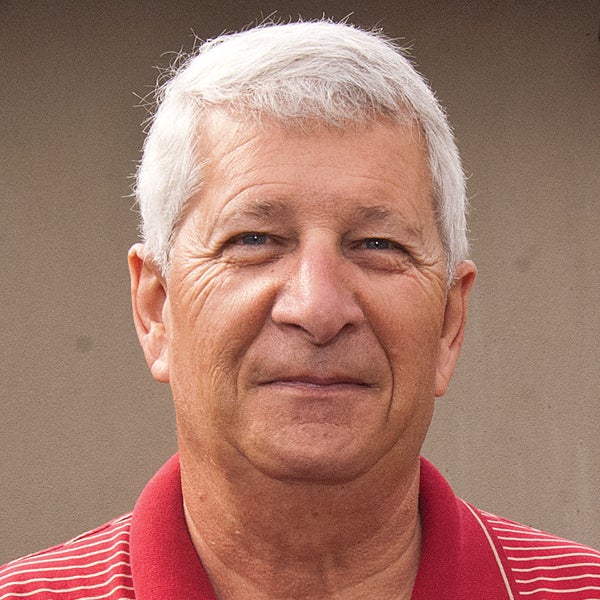Jerry Grooms isn’t originally from Chilton County, but he’s such a recognized figure that it’s hard to believe he hasn’t always been here. A cancer survivor, Grooms is a regular contributor to the county’s Relay For Life effort, and he is the postmaster of one of Clanton’s American Legion posts.
PEACH LIVING MAGAZINE: How did you get involved in Relay For Life?
JERRY GROOMS: Our church, back in ‘93, Highland Baptist Church, we decided we wanted to get involved in the community. Our pastor, Robert Griffin, came up with this idea, why not American Cancer Society? It started off slow, and it became, for us, a huge project. You want to raise more money than everybody else, and we did that for a while. Everybody is affected by cancer in some way. My mother was diagnosed with cancer. My wife is a survivor since ‘99. Two years ago, I was diagnosed with cancer. As it got to that point, that’s when it really hit home.
PL: Are you proud to see how many people in the community are involved now?
JG: Chilton County is one of the best-organized and highest fundraising counties in the state of Alabama. Our program, and it goes back to our leadership that we’ve had, has been a big success. People get excited about this. There’s a lot of competition. It’s fun; it’s enjoyable.
PL: What is your favorite part of Relay For Life?
JG: I think the best part is when we get started, when we get down here to the football field. All the hard work comes together. You all get together and you walk out on the football field and there’s all these tents and lights and banners. The opening ceremony with the Survivor’s Lap, that’s always emotional for me.
PL: How did you become involved with American Legion?
JG: When I got out of the service, I wasn’t involved with anything. I didn’t want to deal with the military; I just wanted out of it. After several years, I was persuaded to join the American Legion. I think this will be my fifth year as post commander. You get to work with some of these older veterans. The World War I veterans and World War II veterans, there aren’t many of them left.
PL: When did you serve in the military?
JG: After high school, back then we had the draft, and I was drafted. Originally, I was in the Marine Corps, but then I got into the Air Force from 1970-74. I was stationed in Korea and Vietnam.
PL: What does American Legion offer to recent veterans?
JG: We try to help guys when they do get back. There’s paperwork to get involved with the [Veterans Affairs] and into the hospitals. The biggest thing, I think, is just staying in contact. We help raise the flag at Chilton County High School football games. We just try to let the public know we’re there, and if we can do anything to help, we’ll do what we can.
PL: What does Memorial Day mean to you?
JG: It’s not only remembering those who fought, but it’s remembering those who gave their lives for the freedom we have today. Freedom is not free; it never has been and it never will be. For me, it’s an honor that we’re able to get together and honor these men and women who have given their lives.
PL: How did you come to reside in Clanton?
JG: I met Vicki Bates. I was “hanging out,” me and my friends, about two weeks before I was going overseas. We were at Wetumpka at the Dairy Queen, and my wife and some of her friends came through. She had an aunt that lived in Wetumpka. After I got overseas, I wrote her, and like they say, the rest is history. [Her father] told her one time, “Vicky, you need to understand: He’s a soldier.” He knew from experience, it’ll go away one day, but it never did.
PL: Is there anything people don’t know about you?
JG: I umpire baseball and softball. I substitute teach, mostly at Clanton Middle School. Being retired, you’ve got to have something to do. n

